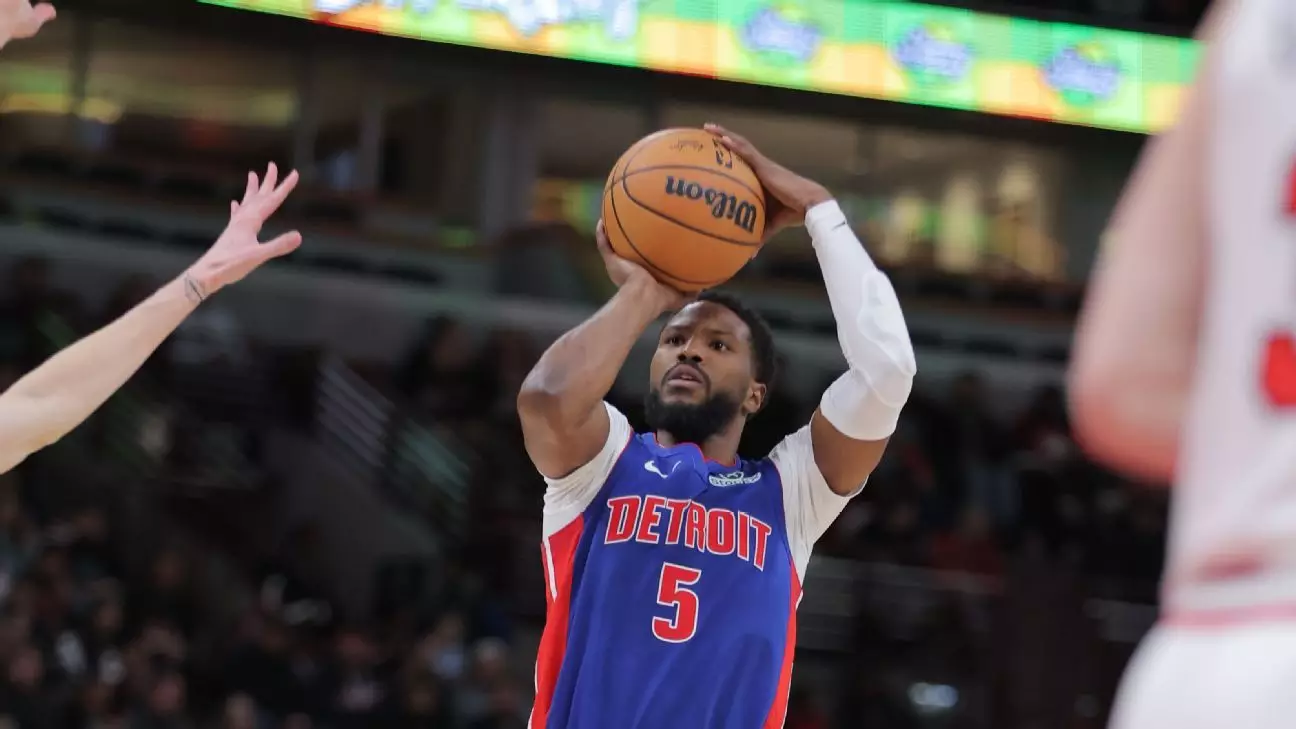The ongoing federal investigation into Malik Beasley’s alleged involvement in gambling activities connected to NBA games thrusts the league into yet another scandal that threatens its integrity and public trust. While gambling and sports have been intertwined for decades, the escalation of suspicious betting patterns on individual player stats highlights dangerous new frontiers. Beasley’s situation is particularly alarming because it implicates a current player with an established reputation, raising uncomfortable questions about the NBA’s capacity to police gambling influences within its ranks.
Unusual Betting Patterns and the NBA’s Vulnerability
The probe sparked by unusually heavy betting on Beasley’s rebounds during a Bucks-Trail Blazers game in January 2024 epitomizes the subtlety with which wrongdoing can be masked in today’s sports betting environment. Odd shifts in odds—like Beasley’s rebound line dropping from +120 to -250—signal that insiders or individuals with specific information might be manipulating bets. Notably, the bets in question ended up losing because Beasley exceeded those rebounds substantially. This specific detail might strike some as anticlimactic, but it doesn’t erase the fact that this type of betting activity creates a perception problem. The NBA faces a precarious balancing act: encouraging the burgeoning sports betting industry as a revenue stream while staunchly defending against corruption that could irreversibly damage the league’s credibility.
Beasley’s Complicated Past Casts Long Shadows
Malik Beasley’s legal history—the 2020 guilty plea on felony charges and subsequent jail time—adds complexity to public judgment of the current investigation. While it would be inappropriate to assume guilt based merely on prior mistakes, patterns of off-court trouble do affect how officials and fans interpret ongoing allegations. The NHL, NFL, and other professional sports leagues have rightly emphasized redemption and second chances, but repeated brushes with legal issues may erode patience and invite skepticism. Beasley’s transient career path, moving through multiple teams in the last few years, also paints a picture of instability that could, in the eyes of critics, correlate with riskier personal choices.
NBA’s Response and the Limits of Cooperation
The NBA’s statement that it is cooperating with federal authorities underscores the league’s awareness of the gravity at hand. However, existing policies and past disciplinary actions—such as those involving Jontay Porter and Terry Rozier—reveal that the NBA often reacts rather than proactively prevents corruption risks. Beasley’s stalled contract negotiations with the Pistons reflect how investigations ripple beyond legal ramifications, impacting player livelihoods and team strategies. It also signals a growing hesitance among franchises to engage fully with players under such clouded circumstances, further complicating Beasley’s career trajectory.
A Flawed Bet on Sports Betting Expansion
Broadly speaking, the NBA’s embrace of legalized sports betting has been a double-edged sword. On one hand, it has opened lucrative markets and deepened fan engagement; on the other, it invites hazards that the league is evidently ill-prepared to manage comprehensively. The Beasley investigation acts as a stark reminder that regulatory frameworks must evolve swiftly beyond superficial cooperation with federal agencies. Without robust, transparent, and independent oversight mechanisms, the league risks becoming a playground for shadowy betting schemes that compromise genuine competition.
The Need for Cultural and Structural Reform
Ultimately, Beasley’s case is symptomatic of a deeper cultural malaise within professional sports where financial pressures intersect perilously with player conduct and league governance. The NBA should leverage this moment to reassess educational programs on gambling, enhance player support networks, and proactively monitor betting markets for anomalies. Gesture alone—like suspensions or fines after the fact—will not suffice. A genuine commitment to reform requires acknowledging that gambling-related corruption is not a fringe problem but a systemic threat looming on the horizon.
By confronting this reality head-on, the NBA has an opportunity to salvage both the sanctity of its games and the future careers of players like Malik Beasley, whose potential is now tangled in controversy. The league’s response in the coming months will be a bellwether for whether it can navigate the treacherous waters of modern sports betting or whether it will be engulfed by the very forces it sought to harness.



Leave a Reply